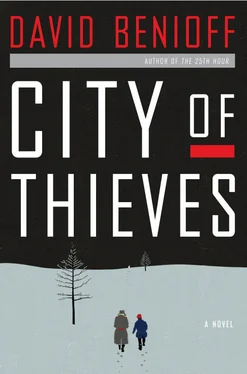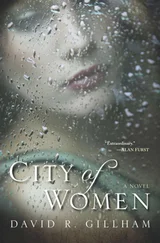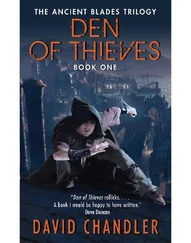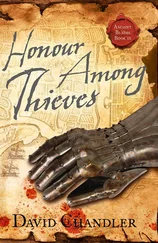David Benioff
CITY OF THIEVES
A Novel
and if the City falls but a single man escapes he will carry the City within himself on the roads of exile he will be the City
Zbigniew Herbert
At last Schenk thought he understood and began laughing louder. Then suddenly he asked in a serious tone, “Do you think that the Russians are homosexuals?”
“You’ll find out at the end of the war,” I replied.
Curzio Malaparte
My grandfather, the knife fighter, killed two Germans before he was eighteen. I don’t remember anyone telling me—it was something I always seemed to know, the way I knew the Yankees wore pinstripes for home games and gray for the road. But I wasn’t born with the knowledge. Who told me? Not my father, who never shared secrets, or my mother, who shied away from mentioning the unpleasant, all things bloody, cancerous, or deformed. Not my grandmother, who knew every folktale from the old country— most of them gruesome; children devoured by wolves and beheaded by witches—but never spoke about the war in my hearing. And certainly not my grandfather himself, the smiling watchman of my earliest memories, the quiet, black-eyed, slender man who held my hand as we crossed the avenues, who sat on a park bench reading his Russian newspaper while I chased pigeons and harassed sugar ants with broken twigs.
I grew up two blocks from my grandparents and saw them nearly every day. They had their own small insurance company, working out of their railroad apartment in Bay Ridge, catering primarily to other Russian immigrants. My grandmother was always on the phone, selling. No one could resist her. She charmed them or she frightened them, and either way, they bought. My grandfather manned the desk, doing all the paperwork. When I was small, I would sit on his lap, staring at the stump of his left index finger, rounded and smooth, the top two knuckles so cleanly severed it seemed he’d been born without them. If it was summer and the Yankees were playing, a radio (after his seventieth birthday, a color television my dad bought him) broadcast the game. He never lost his accent, he never voted in an election or listened to American music, but he became a devout Yankees fan.
In the late nineties, an insurance conglomerate made an offer for my grandparents’ company. It was, according to everyone, a fair offer, so my grandmother asked them to double it. There must have been a good deal of haggling, but I could have told the conglomerate that haggling with my grandmother was a waste of time. In the end they gave her what she wanted and my grandparents, following tradition, sold their apartment and moved to Florida.
They bought a small house on the Gulf Coast, a flat-roofed masterpiece built in 1949 by an architect who would have become famous if he hadn’t drowned the same year. Stark and majestic in steel and poured concrete, sitting on a solitary bluff overlooking the Gulf, it is not the house you’d imagine for a retired couple, but they didn’t move south to wither in the sun and die. Most days my grandfather sits at his computer, playing chess online with old friends. My grandmother, bored by inactivity within weeks of the move, created a job for herself at a commuter college in Sarasota, teaching Russian literature to tanned students who seem (based on my one classroom visit) constantly alarmed by her profanity, her heavy sarcasm, and her word-perfect memory of Pushkin’s verse.
Every night my grandparents eat dinner on the deck of their house, looking out over the dark waters toward Mexico. They sleep with the windows open, the moths battering their wings against the mesh screens. Unlike the other retirees I’ve met in Florida, they’re not worried about crime. The front door is usually unlocked and there is no alarm system. They don’t wear their seat belts in the car; they don’t wear suntan lotion in the sun. They have decided nothing can kill them but God himself, and they don’t even believe in him.
I live in Los Angeles and write screenplays about mutant super-heroes. Two years ago I was asked to write an autobiographical essay for a screenwriting magazine, and midway through I realized I had led an intensely dull life. Not that I’m complaining. Even if the summary of my existence makes boring reading—school, college, odd jobs, graduate school, odd jobs, more graduate school, mutant superheroes—I’ve had a good time existing. But as I struggled through the essay I decided I didn’t want to write about my life, not even for five hundred words. I wanted to write about Leningrad.
My grandparents picked me up at the Sarasota airport; I stooped to kiss them and they smiled up at me, always slightly bemused in the presence of their giant American grandson (at six foot two I’m a giant next to them). On the way home we bought pompano at the local fish market; my grandfather grilled it adding nothing but butter, salt, and fresh lemon. Like every dish he made, it seemed incredibly easy to do, took him ten minutes, and tasted better than anything I’d eaten that year in LA. My grandmother doesn’t cook; she is famous in our family for her refusal to prepare anything more complicated than a bowl of cereal.
After dinner my grandmother lit a cigarette and my grandfather poured three glasses of homemade black currant vodka. We listened to a choir of cicadas and crickets, stared out at the black Gulf, and slapped away the occasional mosquito.
“I brought a tape recorder with me. I thought maybe we could talk about the war.”
I thought I caught my grandmother rolling her eyes as she flicked her ash onto the grass.
“What?”
“You’re forty years old. Now you want to know?”
“I’m thirty-four.” I looked at my grandfather and he smiled at me. “What’s the matter? You guys were Nazis? You’re hiding your Nazi past?”
“No,” he said, still smiling. “We weren’t Nazis.”
“You thought I was forty years old?”
“Thirty-four, forty—” She made her pshh sound, always accompanied by a dismissive wave of the hand, slapping away the stupidity. “Who cares? Get married. Find a wife.”
“You sound like every other grandmother in Florida.”
“Ha,” she said, a little wounded.
“I want to know what it was like. What’s so horrible about that?”
She nodded at my grandfather while pointing the burning tip of her cigarette at me.
“He wants to know what it was like.”
“Darling,” said my grandfather. Just that, nothing else, but my grandmother nodded and stubbed out her cigarette on the glass-top table.
“You’re right,” she told me. “You want to write about the war, you should.”
She stood, kissed me on the top of my head, kissed my grandfather on the lips, and carried the dishes inside the house. For a few minutes we sat there quietly, listening to the waves breaking. He poured us fresh vodkas, happy to see I’d finished mine.
“You have a girlfriend?”
“Uh-huh.”
“The actress?”
“Yeah.”
“I like her.”
“I know you do.”
“She could be Russian,” he said. “She has the eyes…. If you want to talk about Leningrad, we talk about Leningrad.”
“I don’t want to talk. I want you to talk.”
“So, OK, I’ll talk. Tomorrow?”
He kept his word. For the next week we sat together every day on the concrete deck and I recorded his stories. A few hours in the morning, breaking for lunch, then again in the afternoon—my grandfather, a man who hated to speak more than two consecutive sentences in mixed company (meaning in the company of anyone other than his wife), filled minicassette after minicassette with his words. Too many words for one book—truth might be stranger than fiction, but it needs a better editor. For the first time in my life I heard my grandfather curse and speak openly about sex. He talked about his childhood, about the war, about coming to America. But mostly he talked about one week in 1942, the first week of the year, the week he met my grandmother, made his best friend, and killed two Germans.
Читать дальше












